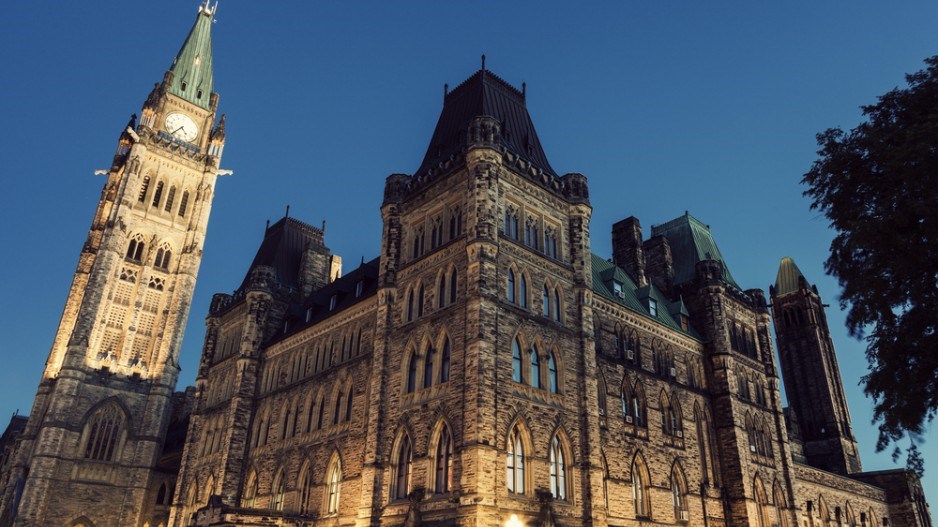Kenny Chiu would still be representing Steveston-Richmond East in Parliament had it not been for a disinformation campaign, a former Canadian diplomat testified Tuesday before a House of Commons committee investigating foreign interference in Canadian elections.
Conservative Chiu lost his seat in the September 2021 federal election by 3,477 votes to Liberal rookie Parm Bains.
During the campaign, Chinese state media and social media carried stories that labelled Chiu and the Conservatives “anti-China” and accused them of stoking anti-Asian racism after Chiu tabled a bill in April 2021 to create a registry of anyone lobbying for any foreign government. Chiu was also among several Canadian politicians who were sanctioned after voting to declare China’s treatment of Uyghur Muslims a genocide.
Macdonald-Laurier Institute senior fellow Charles Burton, who had two tours of duty at Canada’s embassy in Beijing, testified to the Procedure and House Affairs Committee that the “massive campaign of disinformation on multiple Chinese-language websites directed at people in Canada” appeared after an opinion poll suggested the Erin O’Toole-led Conservatives could form a minority government.
Burton monitors Chinese-language media originating from both China and Canada, but said he also mobilized friends in the Hong Kong community to search through the internet to find the source of the disinformation campaign. They were unsuccessful.
“It happened too fast, and immediately Mr. Chiu's numbers started to plummet,” Burton said.
He said Canadian intelligence agents who monitor elections were caught off-guard without necessary resources.
“So in the case of Mr. Chiu, he didn't have anywhere really to turn for seeking some complaint about being slandered and mischaracterized in the Chinese language, there was no means to identify where the source of the Chinese information and WeChat [posts] came from,” Burton said.
“There was nothing in the Conservative Party or, indeed, within Elections Canada or even within the G7 Rapid Response Mechanism in Global Affairs [which monitors foreign disinformation threats], that was able to come to terms with this. He was unable to respond to these allegations, which are utterly false.”
David Mulroney, a former Canadian ambassador to China, testified that one solution would be what Chiu was proposing: A registry of foreign agents. Such a mechanism would require transparency about anyone who disburses funds, lobbies for or speaks on behalf of a foreign state in Canada. Registries exist in the U.S. and Australia, and the U.K. is considering one.
"We must empower our security agencies and police to identify and bring to justice those who fail to do so,” Mulroney said. “And we need to hold current and former elected officials and public servants to higher standards of transparency, accountability and loyalty.”
Mulroney said that China is also a focus of concerns about political interference in the U.S., U.K., Australia and New Zealand, because Beijing’s objective is to influence democracies, economies, foreign policies and daily life in some communities, “beyond the ambitions of any other country. This is furthered by propagation of the falsehood that simply speaking up about PRC [People’s Republic of China] interference is itself racist, anti-Chinese.”
“I believe that Beijing's ambitions and capabilities are growing, and because many of the victims of PRC interference in Canada are members of Han Chinese, Uyghur and Tibetan diaspora communities, whom Beijing threatens with seeming impunity. Beijing's tools include bribery, disinformation, collusion with criminal gangs and the ever-present threat of hostage taking. And it is increasingly sophisticated in its intimidation of elected officials who dare to speak the truth to Canadians.”
Burton said another sign of how China strategically views Canada is the amount of diplomats it has accredited. According to his analysis of the Global Affairs Canada diplomatic and consular directory, China has 146 envoys in Canada, compared to 46 for Japan, 35 for India and 23 for the U.K. Burton wondered if one reason for the high numbers could be the Chinese Communist Party’s United Front disinformation and coercion activities that sparked warnings from the Canadian Security Intelligence Service (CSIS).
“I would imagine that CSIS would know the answer to that question, and if so, I do hope that CSIS will be prepared to share that information, about the United Front work mandate of the Chinese diplomats here in Canada, with this committee,” Burton said.




